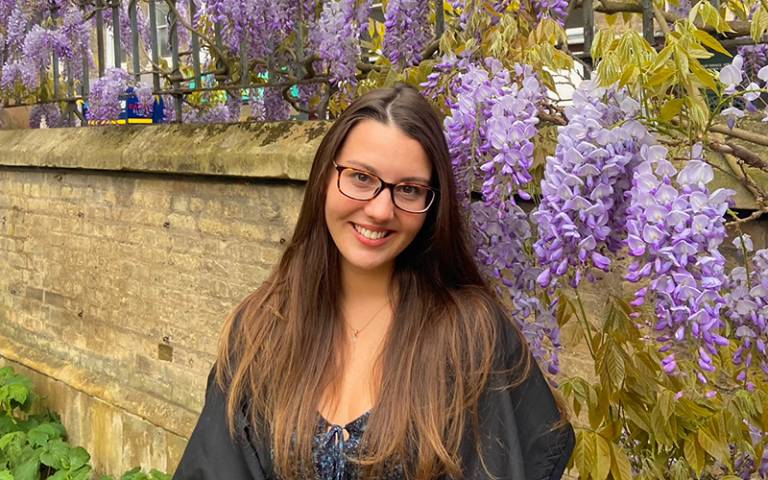IOE Master’s student awarded the Harry Hodson Prize for essay on language preservation in Gibraltar
13 May 2024
Sophie Macdonald (Intercultural Communication MA) has been named a joint winner of the 2023 Harry Hodson Prize of The Round Table journal for her essay on Llanito, the local language variety of Gibraltar.

Her piece was titled ‘In defence of Llanito: Gibraltar in a state of linguistic transition’.
Sophie's research interests lie in language endangerment, decolonisation and translingualism – stemming from a desire to protect Llanito from language loss in Gibraltar, her birthplace.
Before her time at IOE, Sophie studied English at the University of Cambridge, where her dissertation explored the use of Llanito in Gibraltarian literature.
Sophie’s essay will be published in a future issue of The Round Table.
The Round Table was founded in 1910 and is the oldest English-language international affairs journal. It analyses and provides commentary on aspects of international affairs, including policy issues concerning the contemporary Commonwealth.
The prize is named after Harry Hodson, the journal’s editor in the 1930s, and is awarded annually to candidates under 30 writing on any aspect of the Commonwealth.
We asked Sophie...
Your winning essay discusses Llanito in Gibraltarian literature, why did you choose to write about this? Can you talk about the significance of language endangerment / language loss in your research?
When I was studying towards my undergraduate (UG) degree in English at Cambridge, I came across a lot of South American literature and African literature, which uses a lot of local varieties as expressions of identity. Being from Gibraltar, I began to think about how Llanito, our own local variety, is used an identity marker in our literature.
After researching this, which included interviewing politicians, I found there was increasing concern that Llanito is dying out among younger generations. From this, an interest in language loss and endangerment spurred and has been present in my research since!
Tell us about your field of study. What do you find interesting about it and what inspires you?
Intercultural Communication allows me to keep writing about Llanito and to help raise academic awareness about its loss. Efforts for language preservation inspire me, and it's been fascinating to study them and see how they could be applied to Gibraltar.
What did your journey to IOE look like, and why did you choose to study here? How has the experience developed your practice?
I chose to study here because of its rankings on the league tables and because London is such an exciting hub. IOE has helped to expose me to interesting new theories and practices and has changed my way of thinking about languages and Englishes.
Related links
- Intercultural Communication MA
- Department of Culture, Communication and Media
- More about the Harry Hodson prize
Image
Permission via Sophie Macdonald.
 Close
Close

